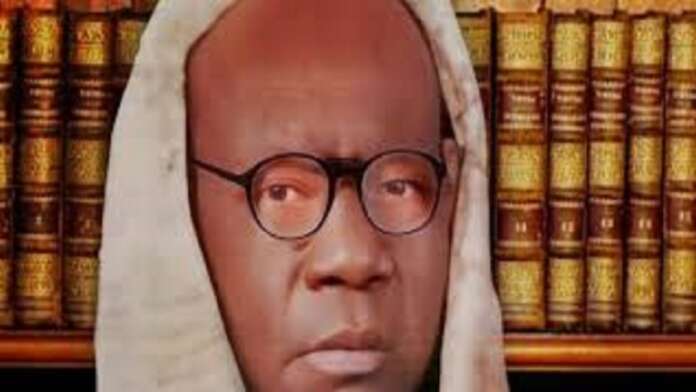A notable retired justice of the Supreme Court, Hon. Justice Emmanuel Obioma Ogwuegbu has reportedly died
Law & Society Magazine confirmed his demise from sources close to the eminent jurist.
Justice Ogwuegbu, who joined the Supreme Court in February 1992 and retired on 16 March 16, 2003, would have been 92 in March 2025.
His Lordship spent five years at the Court of Appeal Court before his elevation to the Supreme Court.
He also served in the Supreme Court of The Gambia following his appointment in December 1999.
Obioma Ogwuegbu started off as a magistrate and progressed to the High Court of old Imo State, the Court of Appeal and eventually the Supreme Court.
A humble, resilient, compassionate and hardworking jurist according to many of his colleagues and proteges, Justice Ogwuegbu delivered many notable verdicts during his Odyssey on the bench.
One of his notables is his lead judgment delivered on May 29, 1998, in a celebrated criminal case between Sunday Effiong (appellant) and the State (respondent).
The appellant (Effiong) was on September 27, 1983, convicted at the High Court of Borno State Holden at Bama and sentenced to death by hanging under Section 221(b) of the Penal Code for causing the death of Police Constable Isaac Onoh on or about June 23, 1982, at Tandari Ward, Bama, by stabbing the said Isaac Onoh on the stomach with the knowledge that death would be the probable consequence of his act. (See Onafowokan v. The State.)
Another was his consensus with a seven-man panel of justices on Friday, April 5, 2002, in a case between the Attorney General of the Federation and the Attorney General of Abia State and 35 others over the derivation palaver, wherein he concurred with the decision of the lead judgment that the Federal Government should calculate the derivation based on the low water mark.
It was a dispute between the Federal Government, on the one hand, and the eight littoral states of Akwa Ibom, Bayelsa, Cross River, Delta, Lagos, Ogun, Ondo, and Rivers on the other hand as to the southern (or seaward) boundary of each of these states
Justice Ogwuegbu was also in the panel that adjudicated over the question of the National Assembly to enact laws to regulate the tenure of local councils. In that case, the Supreme Court declared that no law enacted by the National Assembly could validly increase or otherwise alter the tenure of office of elected officers or chairmen and councillors of local councils in Nigeria except for the Federal Capital Territory (FCT) alone.
His Lordship went to the University of Liverpool, England in 1957 and left in 1960 with an LL.B degree in law; Middle Temple between 1960 and 1962 and also bagged an LL.M from the University of London.
He was called to the English Bar and in October 1962 he became Barrister and Solicitor of the Supreme Court of Nigeria.
Ogwuegbu began his private legal practice in 1963 but before he departed for higher studies in England, he worked as a clerk in the then-Okigwe Native Authority from 1953 to 1956.
In 1965 he was appointed Magistrate Grade 1. He was later promoted to a senior magistrate in 1969. Thereafter, he was seconded to the Ministry of Justice, East-Central State of Nigeria as Secretary to the Law Revision, Law Reform, and Law Reporting Division of the Ministry of Justice. In that capacity, he edited Vol. X of the Eastern Law Reports and Vol. 1 of the East Central State Law Report in 1970. In 1971, he resigned and resumed private legal practice.
When he was appointed a judge of the High Court of Imo State in 1976, he was assigned to Owerri and Aba Judicial Divisions from 1976 to 1987 as an administrative judge in both divisions.
In 1987, he was elevated to the Court of Appeal of Nigeria where after spending only five years at the Appeal Court he was elevated to a justice of the Supreme Court of Nigeria in February 1992.
Justice Ogwuegbu will be missed by many.





